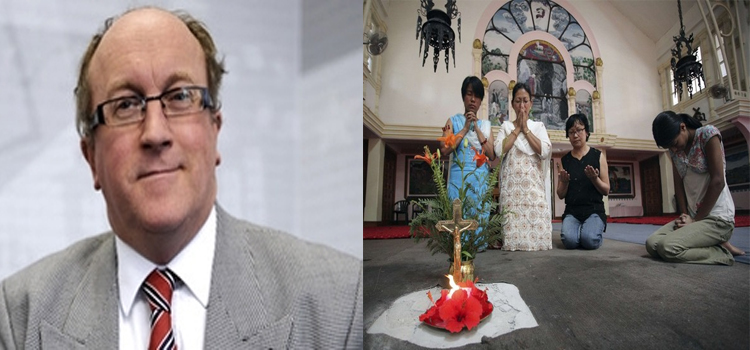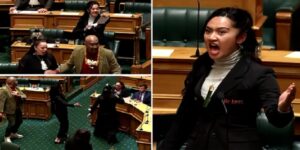British Ambassador to Nepal has asked the lawmakers to draft a constitution that would ensure the right of the citizens to conversion, drawing flak from the country’s pro-Hindu party who called his remarks a blatant violation of diplomatic norms.
Andy Sparkes, UK’s ambassador to Nepal, in an open letter to lawmakers published in a national daily recently had, among other things, asked them “to ensure that the right to change religion is protected” in the new statute.
The government has decided to seek clarifications from Sparkes and caution him against making such ‘unwarranted suggestions’.
Minister for Foreign Affairs Mahendra Bahadur Pandey said the government will first seek clarifications from Sparkes to learn in detail about his controversial remarks.
“We are clear about what should be the provision about religion in our statute. Any suggestion to us on this issue at this juncture of the constitution writing process is unwarranted,” Pandey was quoted as saying by My Republica.
President of Nepal’s pro-Hindu Rastriya Prajatantra Party Kamal Thapa and lawmakers met Prime Minister Sushil Koirala and raised serious objection to Sparkes’s remarks.
“The UK ambassador should be alerted for speaking such an irresponsible thing, which is an interference in our internal matters,” Thapa told Koirala.
Thapa said that 80 per cent Nepalese are followers of Hinduism and making such remarks is a blatant violation of diplomatic norms.
The RPP Nepal and a section of ruling Nepali Congress leaders are demanding to re-convert Nepal into a Hindu state.
Although Nepal, a former Hindu Kingdom, was declared secular with the abolition of monarchy in 2008 after the popular movement, religion conversion is still considered punishable by Nepalese law.
Meanwhile clarifying the matter the UK Embassy, said in a statement that “it is the members of the Constituent Assembly and Nepal’s citizens to decide what kind of constitution Nepal should have.”
“Some have misunderstood the letter’s reference to protecting an individual’s right to change religion, which is simply a reference to a fundamental individual right, set out in Article 18 of the UN Universal Declaration of Human Rights,” Sparkes said.
“It was not a reference to supporting forced conversion or proselytising. Nor was the embassy or its officials preaching or imposing any religious points of view on Nepal’s democratically elected representative,” the statement said.
“The matter about secularism is a matter of Nepal’s people and their elected representatives to decide,” it said.






























